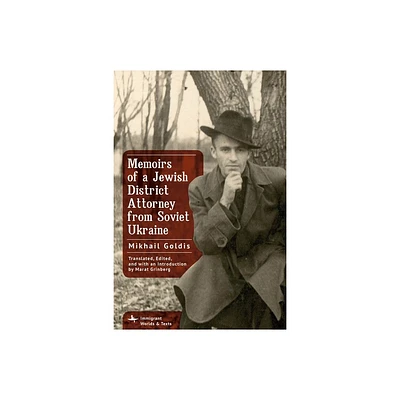Home
So They Remember: A Jewish Family's Story of Surviving the Holocaust Soviet Ukraine
Loading Inventory...
Barnes and Noble
So They Remember: A Jewish Family's Story of Surviving the Holocaust Soviet Ukraine
Current price: $24.95


Barnes and Noble
So They Remember: A Jewish Family's Story of Surviving the Holocaust Soviet Ukraine
Current price: $24.95
Loading Inventory...
Size: Paperback
*Product Information may vary - to confirm product availability, pricing, and additional information please contact Barnes and Noble
When we think of Nazi camps, names such as Auschwitz, Bergen-Belsen, and Dachau come instantly to mind. Yet the history of the Holocaust extends beyond those notorious sites. In the former territory of Transnistria, located in occupied Soviet Ukraine and governed by Nazi Germany’s Romanian allies, many Jews perished due to disease, starvation, and other horrific conditions. Through an intimate blending of memoir, history, and reportage,
So They Remember
illuminates this oft-overlooked chapter of the Holocaust. In December 1941, with the German-led invasion of the Soviet Union in its sixth month, a twelve-year-old Jewish boy named Motl Braverman, along with family members, was uprooted from his Ukrainian hometown and herded to the remote village of Pechera, the site of a Romanian death camp. Author Maksim Goldenshteyn, the grandson of Motl, first learned of his family’s wartime experiences in 2012. Through tireless research, Goldenshteyn spent years unraveling the story of Motl, his family members, and their fellow prisoners. The author here renders their story through the eyes of Motl and other children, who decades later would bear witness to the traumas they suffered. Until now, Romanian historians and survivors have served as almost the only chroniclers of the Holocaust in Transnistria. Goldenshteyn’s account, based on interviews with Soviet-born relatives and other survivors, archival documents, and memoirs, is among the first full-length books to spotlight the Pechera camp, ominously known by its prisoners as Mertvaya Petlya, or the “Death Noose.” Unfortunately, as the author explains, the Pechera camp was only one of some two hundred concentration sites spread across Transnistria, where local Ukrainian policemen often conspired with Romanian guards to brutalize the prisoners. In March 1944, the Red Army liberated Motl’s family and fellow captives. Yet for decades, according to the author, they were silenced by Soviet policies enacted to erase all memory of Jewish wartime suffering.
gives voice to this long-repressed history and documents how the events at Pechera and other surrounding camps and ghettos would continue to shape remaining survivors and their descendants.
So They Remember
illuminates this oft-overlooked chapter of the Holocaust. In December 1941, with the German-led invasion of the Soviet Union in its sixth month, a twelve-year-old Jewish boy named Motl Braverman, along with family members, was uprooted from his Ukrainian hometown and herded to the remote village of Pechera, the site of a Romanian death camp. Author Maksim Goldenshteyn, the grandson of Motl, first learned of his family’s wartime experiences in 2012. Through tireless research, Goldenshteyn spent years unraveling the story of Motl, his family members, and their fellow prisoners. The author here renders their story through the eyes of Motl and other children, who decades later would bear witness to the traumas they suffered. Until now, Romanian historians and survivors have served as almost the only chroniclers of the Holocaust in Transnistria. Goldenshteyn’s account, based on interviews with Soviet-born relatives and other survivors, archival documents, and memoirs, is among the first full-length books to spotlight the Pechera camp, ominously known by its prisoners as Mertvaya Petlya, or the “Death Noose.” Unfortunately, as the author explains, the Pechera camp was only one of some two hundred concentration sites spread across Transnistria, where local Ukrainian policemen often conspired with Romanian guards to brutalize the prisoners. In March 1944, the Red Army liberated Motl’s family and fellow captives. Yet for decades, according to the author, they were silenced by Soviet policies enacted to erase all memory of Jewish wartime suffering.
gives voice to this long-repressed history and documents how the events at Pechera and other surrounding camps and ghettos would continue to shape remaining survivors and their descendants.


















